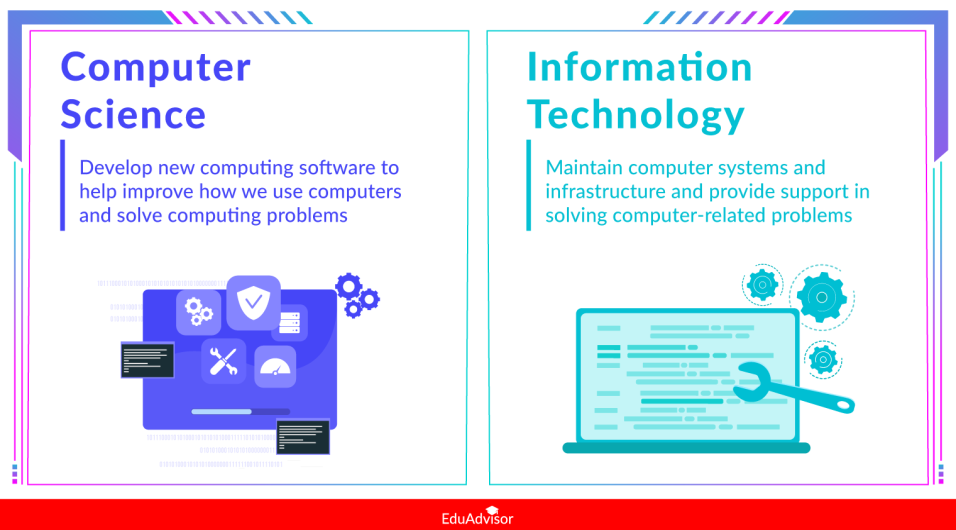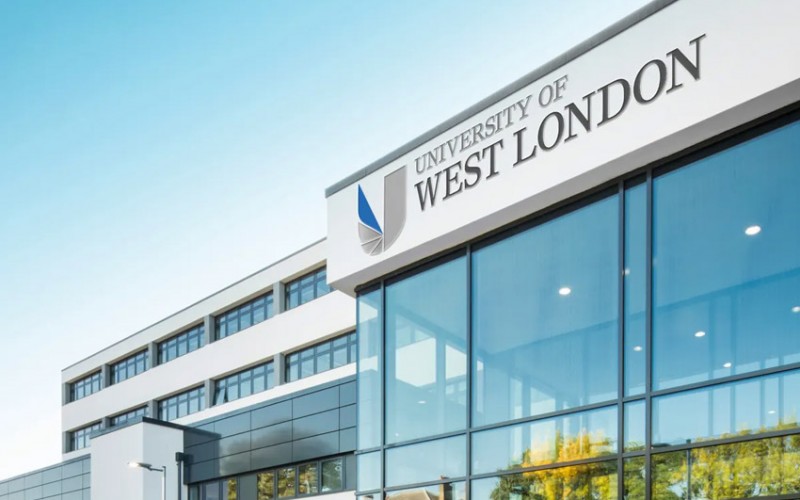
Information Technology and Computer Science
Information Technology (IT) and Computer Science (CS) are two closely related fields that often intertwine but possess distinct characteristics. This Research Paper aims to conduct a comparative analysis of the differences and similarities between Information Technology and Computer Science. By delving into the intricacies of these disciplines, this study will provide an in-depth examination of how IT and CS diverge and converge in terms of their focus, methodologies, and applications. Understanding the nuances of these fields is crucial in today's technologically driven world, where both IT and CS play pivotal roles in shaping our modern society. Through a comprehensive exploration of the key aspects of Information Technology and Computer Science, this research seeks to shed light on their unique contributions and the essential distinctions that define each discipline.
A Comparative Analysis
In order to grasp the fundamental differences between computer science and information technology, it is essential to understand that while these fields are interconnected, they each have distinct focuses and methodologies. Computer science primarily deals with the theoretical underpinnings and innovative aspects of computing, requiring a strong foundation in mathematical and scientific principles to develop new algorithms, software, and computational models. This field is driven by the goal of creating novel solutions and advancing the boundaries of technology, often involving complex problem-solving and the design of new computer systems and applications. On the other hand, information technology is more practically oriented and focuses on the application and management of computer systems to meet organizational needs. It involves the maintenance, troubleshooting, and optimization of existing technological infrastructures to ensure efficient data processing and smooth operational workflows. Consequently, while both fields contribute significantly to the technology sector, their roles and expertise differ, highlighting the importance of recognizing their unique contributions and the specialized skill sets they require .
The research paper titled "Differences and Similarities Between Information Technology and Computer Science: A Comparative Analysis" delves into the distinct focuses and methodologies of computer science and information technology.
The discussion surrounding this comparative analysis highlights the essential differences between the two fields, emphasizing the theoretical nature of computer science and its emphasis on developing new algorithms, software, and computational models based on mathematical and scientific principles. In contrast, information technology is characterized as being more practically oriented, focusing on the application and management of computer systems to cater to organizational needs. This comparison underscores the interconnected yet separate realms of computer science and information technology, shedding light on how each discipline contributes uniquely to the technological landscape. Moving forward, it is crucial to acknowledge the implications of these distinctions for academic programs, industry practices, and technological advancements. Furthermore, this discussion prompts further exploration into the evolving relationship between computer science and information technology, paving the way for future research endeavors that aim to bridge the gap between theory and application in the realm of computing.







